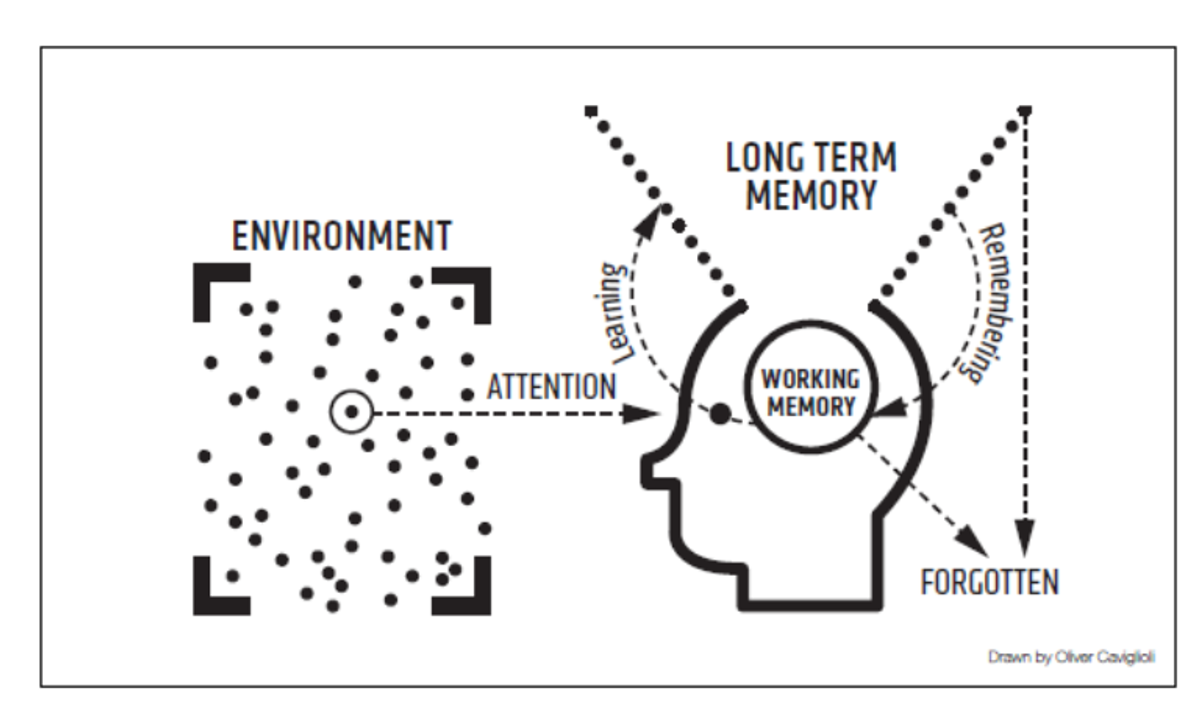Acting Principal/Deputy Principal Teaching and Learning Report

Year 12 students are about to embark on their exams, and Year 9, 10 and 11 students will be doing so soon. When studying, students need to be able to store information in their memory and then retrieve it in the examination. How does memory work? The above diagram summarises the three stages in the process of memory that are postulated by Atkinson and Shiffrin (1968). Understanding how our memory stores information is helpful for teachers and students, so I thought I would share this with you this week.
When we come across new information in our environment, the information goes to our sensory memory. The information in sensory memory is held very briefly. If we pay attention to this information, it passes into short-term or “working” memory. I now know why my Maths teacher was always telling me to pay attention and stop talking! Attention can be said to be the gateway to thinking.
Short-term or working memory can only hold about seven “bits” or “chunks” of information. Information is stored here only briefly. To keep data in working memory, we have to rehearse it. Paying attention to information and processing (encoding) it means that the information passes into long-term memory. This is why teachers explain information and then ask students to undertake an activity in class to consolidate understanding and memory.
When information passes into long-term memory, it is stored for later retrieval. Information is stored in semantic networks. This means that we connect things that we have just learned to things we already know. This is why teachers ask students to create mind maps for revision. If students can understand how things are connected, it is much easier to store the information.
Forgetting happens when we do not actively retrieve information. Retrieval is the process of getting information out of long-term memory back into short-term or working memory. The more you retrieve information, the better you remember it. This is why teachers set homework and revision tasks. They are actually retrieval tasks.
I hope that this has shone some light on the process of memory!
Ms Claire Nailon
Acting Principal
Deputy Principal Teaching and Learning


